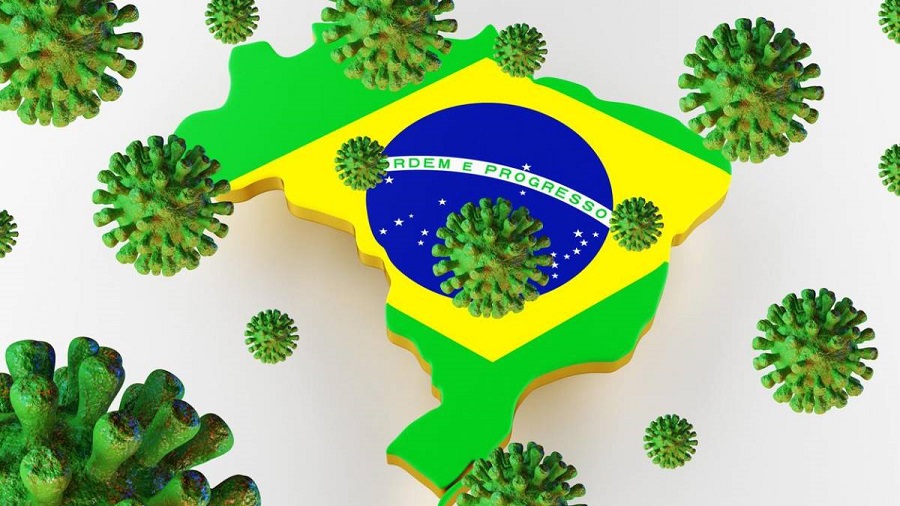RIO DE JANEIRO, BRAZIL – When on Friday the second Health Minister resigned within a month, one of the Brazilians who is more closely monitoring the development of the pandemic declared the stage of “every man for himself”. “I never so wished I was wrong as today. Let every state and every city take care of themselves. Our problem will be long,” said Atila Iamarino, a biologist and scientific researcher who is successful on YouTube with his briefings on Covid-19.

With nearly 17,000 deaths and 254,000 infections, Brazil has one of the most active outbreaks in the world. The official balance places it as the third country in number of cases, after topping the UK on Monday – and Italy and Spain at the end of the week – and the sixth in deaths.
But the reality in Latin America’s most populous country may be much worse for a number of factors: it’s among those that have run the fewest tests, acute respiratory syndrome hospitalizations and suspected deaths have skyrocketed since the first contagion. The management of the health crisis and of quarantines is increasingly chaotic in a country that only a few years ago made remarkable progress in the fight against AIDS and zika.
The impact of Covid-19 is very inequitable in this territory of continental dimensions and 210 million inhabitants, which is also tackling the crisis with a negationist President, Jair Bolsonaro, who directly boycotts the efforts of governors in ensuring that isolation recommendations are respected and that the pandemic be contained.
Walter Cintra, a hospital administration specialist at the Getúlio Vargas Foundation, recalls that the speed of contagion and the mortality has surprised the entire scientific community, but points out that Brazil “is experiencing a tragedy” because of an additional problem: its federal government.
“The President entered a collision course with science, turned it into a political project, and even threatened with a coup d’état. It is very difficult to manage a pandemic like this one. It’s gone beyond all limits,” he stresses over the phone. Cintra, a doctor and professor, stresses that it is necessary to carefully balance the social isolation measures because “people cannot starve to death at home,” they have to earn a living. And he claims social help because not all Brazilians can afford to be confined.
Aside from political debate, alarms go off even in São Paulo, the economic capital. Although it is the epicenter of the epidemic, its hospital network is much more robust than that of poorer Northeastern states, where the system has already collapsed.
Mayor Bruno Covas alerted on Sunday that 90 percent of the ICUs in this city of 12 million inhabitants are full, which requires a total lockdown similar to that implemented earlier this month by other smaller capitals, such as São Luis (Maranhão), Belém (Pará) or Fortaleza (Ceará). Manaus has not done so, although its health and funeral system has been overburdened for weeks.
The Mayor of São Paulo would like to ban all non-essential services, but he cautioned that confining the city without including the entire Metropolitan Region would make little sense and thus passed the buck to the governor, who fails to make up his mind. São Paulo was one of the first places to close schools and establish a quarantine 55 days ago, but after a few weeks of relatively strict compliance, citizens relaxed out of necessity or carelessness, and only half the population stays home.
It is impossible to determine even roughly the magnitude of the pandemic because Brazil has only managed to run about 350,000 tests. Of these, 150,000 are pending processing. Spain, with five times less population, has performed 1.3 million.
Then there’s the misgovernment in the Ministry of Health. Bolsonaro’s pressures have been constant since the start of the crisis. He wants the health authorities to relax the isolation recommendations -to resume economic activity- and to include chloroquine -an antimalarial drug- in public health treatments, despite the lack of scientific endorsement. This was excessive for the last two Ministers. Both are doctors and, in order not to violate Hippocrates’ oath, they went home.
The reins of the Ministry are now temporarily in the hands of General Eduardo Pazuello, a specialist in logistics who conceded that he did not know the management of health. He joined the Ministry in April as number two, with the mission of organizing the purchase and transfer of the equipment needed to address the epidemic. With him, ten of the 22 Ministers come from the Armed Forces.
Bolsonaro intends to include chloroquine in the public health protocol to treat mild cases. Given the possible increase in demand, the Army, which manufactures it for malaria, has stepped up production.
The state of Rio de Janeiro, on the verge of collapse, has just lost its Health Secretary. He was dismissed early Sunday morning on charges of fraud in bidding to buy ventilators.
Source: El País

